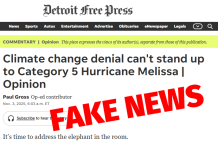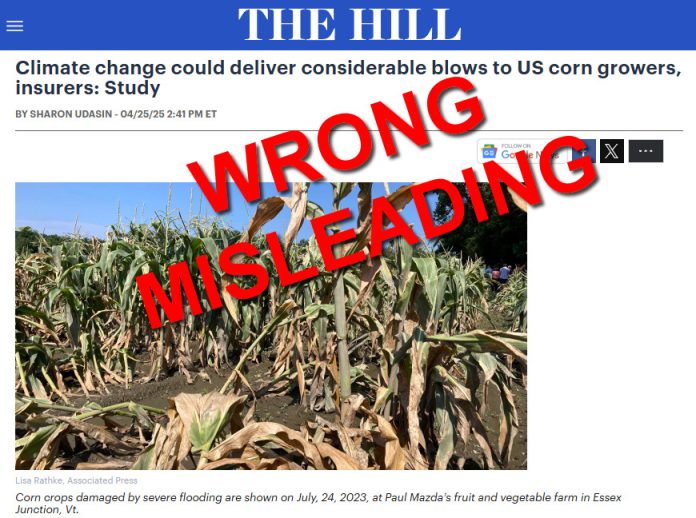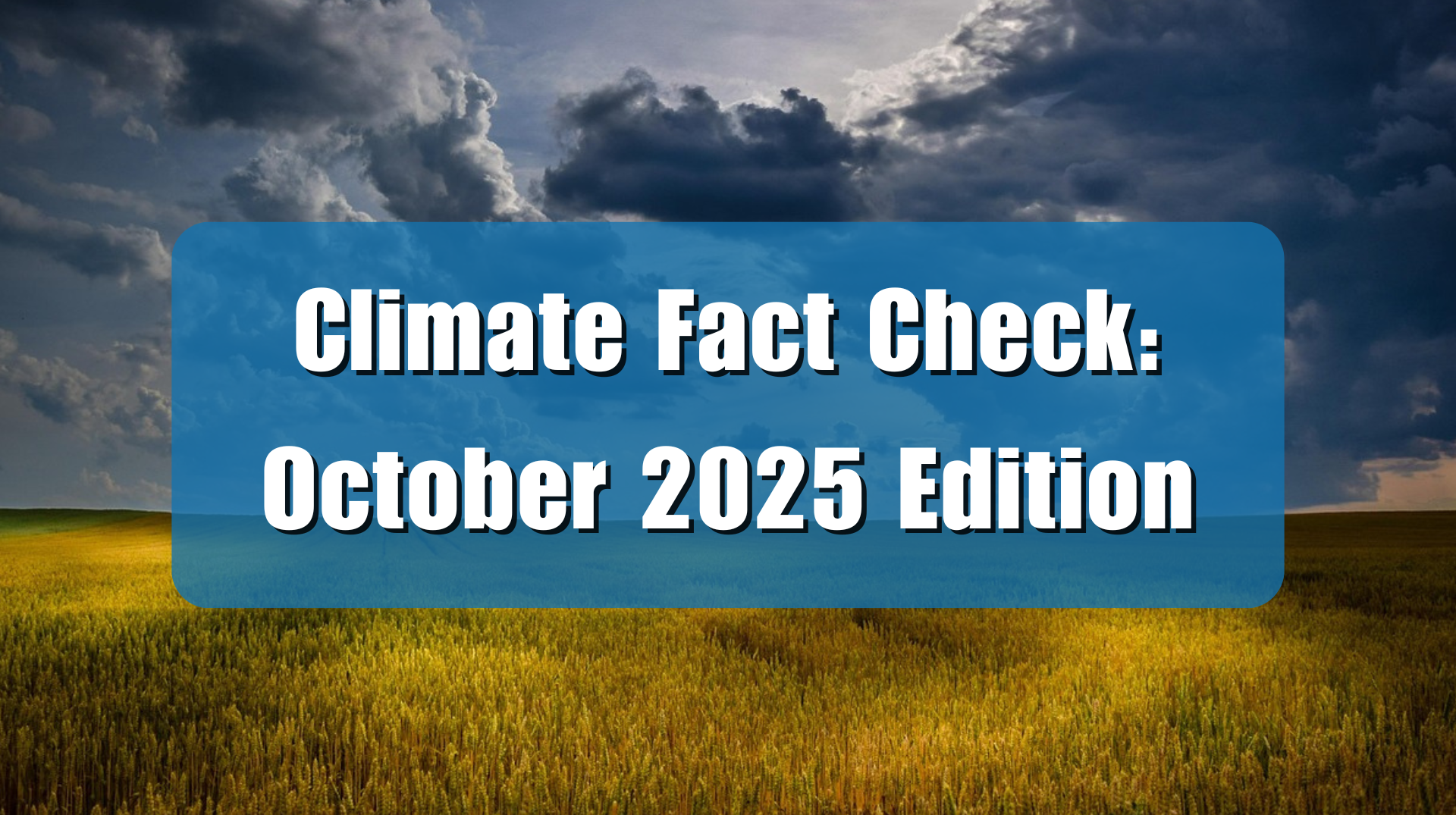In a recent editorial from The Hill titled “Climate change could deliver considerable blows to US corn growers, insurers: Study”, the author claims that climate change will cause a dramatic increase in crop insurance claims: a 22 percent rise by 2030 and a 29 percent jump by mid-century. The available evidence refutes this assertion. There is no data indicating corn crop losses are or will increase due to changing climate conditions. These dire predictions are based on flawed models, unverified assumptions, and an overreliance on speculative climate scenarios, rather than actual observed data for corn production, which has regularly set new records during the recent period of modest warming.
As seen below in Figure 1, for over 40 years, average temperatures in the United States have indeed been rising slightly.
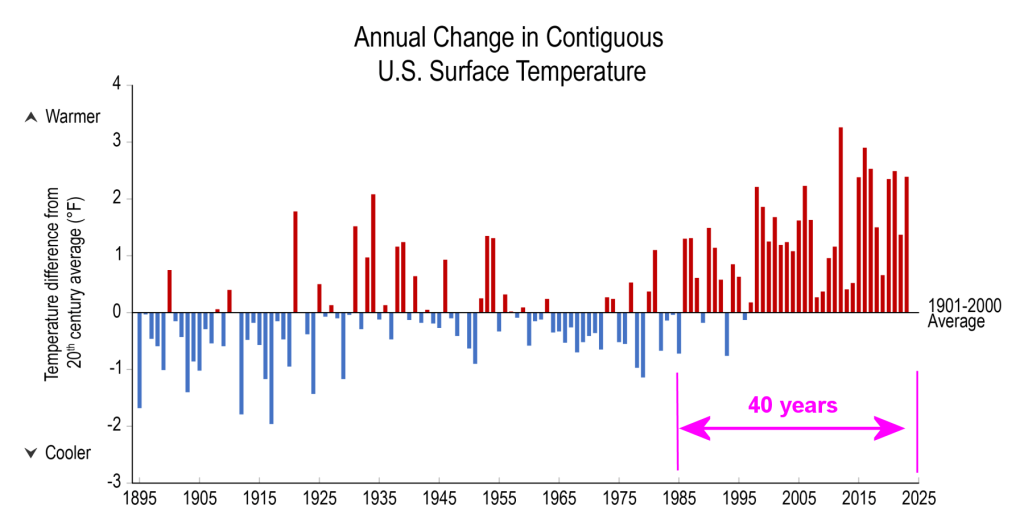
However, this has not resulted in declining agricultural productivity as climate alarmists frequently suggest. In fact, U.S. corn yields have steadily increased over the same period, according to U.S. Department of Agriculture (USDA) data plotted by Purdue University and shown in Figure 2 below.
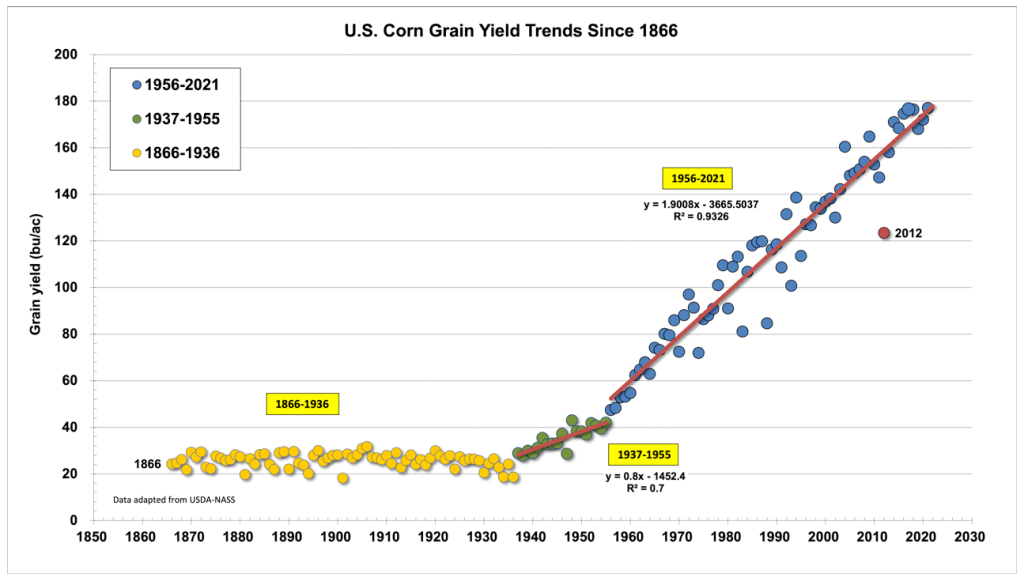
The good news is that according to the USDA data, corn grain yields in the U.S. have steadily increased since the 1950s at a rate of almost 2 bushels per acre per year.
As detailed in this Climate Realism article, higher atmospheric CO2 concentrations have enhanced photosynthesis, particularly benefiting crops like corn. The USDA reports that corn yields have more than doubled since the 1980s, demonstrating the resilience and adaptability of U.S. agriculture. Improvements in seed genetics, better farming practices, and technology have all contributed, making farmers more capable of handling weather variations than ever before.
The Hill article leans heavily on projections generated by an “AI-powered tool” created by researchers at UC Berkeley and the University of Arkansas. However, as highlighted by numerous articles on ClimateRealism, including this detailed analysis, climate models have repeatedly failed to accurately predict weather patterns or crop outcomes over time. The notion that insurance claims will spike due to increased extreme weather events is speculative at best, especially considering the fact that data shows no noticeable trend in worsening weather. Extreme weather events of the types that might impact corn production or yields have not become more frequent or severe in recent decades.
The article’s warnings about “more intense droughts, longer heat waves, and more catastrophic floods” are not supported by current data. As discussed in this post, the National Oceanic and Atmospheric Administration and other authoritative bodies have found no clear trend in increasing drought frequency or intensity in the United States. Furthermore, flood data also contradicts alarmist claims. There has been no upward trend in flood severity or frequency, nationally.
The authors’ suggestion to alter farm policy by incentivizing practices like cover cropping and crop rotation might sound appealing, but even they admit these would lower annual yields. Imposing such policies based on speculative climate risks would harm the very farmers they claim to be trying to protect, reducing productivity in the name of theoretical resilience. Essentially policies like this would be incentivizing inefficiency.
Also, there is no evidence whatsoever that planting cover crops, rotating crops, or other so-called resiliency measures, will avoid losses if droughts or floods do become more frequent or severe. Instead, there would just be insurance payouts for alternative crop losses.
It’s astonishing that The Hill would publish such an article based on shaky, unverified models without at least checking real-world data trends on agricultural productivity and extreme weather. For over four decades, U.S. farmers have thrived even as temperatures have modestly risen. This editorial exemplifies the poor research and blind acceptance of climate alarmism that too often passes for journalism today. Instead of challenging dubious claims, The Hill parrots them, spreading fear and misinformation to the public.





